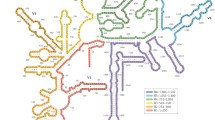Abstract
The application of molecular biological methods to study the diversity and ecology of microorganisms in natural environments has been practiced since the mid-1980s. Since that time many new insights into the composition of uncultivated microbial communities have been gained. Whole groups of organisms that are only known from molecular sequences are now believed to be quantitatively significant in many environments. Molecular methods have also allowed characterization of many long-recognized but poorly understood organisms. These organisms have eluded laboratory cultivation and, hence, have remained enigmatic. This review provides an outline of the main methods used in molecular microbial ecology, and their limitations. Some discoveries, made through the application of molecular biological methods, are highlighted, with reference to morphologically distinctive, uncultivated bacteria; an important biotechnological process (wastewater treatment); and symbiotic relationships between Bacteria, Archaea and Eukarya.
Similar content being viewed by others
Author information
Authors and Affiliations
Additional information
Received: 31 October 1996; Accepted: 28 January 1997
Rights and permissions
About this article
Cite this article
Head, I., Saunders, J. & Pickup, R. Microbial Evolution, Diversity, and Ecology: A Decade of Ribosomal RNA Analysis of Uncultivated Microorganisms. Microb Ecol 35, 1–21 (1998). https://doi.org/10.1007/s002489900056
Issue Date:
DOI: https://doi.org/10.1007/s002489900056




